Tiger research: Indonesia, From the multifarious marine life of Sabang to Bukit Lawang’s famous orangutans, Indonesia’s largest island attracts millions of tourists each year with its diverse fauna.
But while sustainable tourism helps protect many of the island’s wildlife, one of its rarest species, the Sumatran tiger, suffers as the island’s cities continue to encroach further into its forest habitat.
Fortunately Biosphere Expeditions have created a trip that not only benefits the critically endangered animal, but helps protect it too. Based in a remote camp in the heart of the rainforest, volunteers will scour the landscape documenting tracks, kills and scats to aid crucial research into lives of these majestic felines – ultimately aiding their survival.

Cycling tour: Cambodia, Cambodia is the kind of country that needs to be explored slowly: an ancient world of crumbling temples and untamed jungle that’s entwined with Asian flavours and fervour.
Many meander to the main cities on colossally creaky coaches, but they miss much of Cambodia’s heart. Not so with PEPY Tours, which offers 1,000km (621 miles) of lush paddy fields, dusty orange tracks and winding rivers on its 15-day cycling expeditions.
Money goes directly to local people through homestays and lunches, while tours allow visitors to learn Khmer customs and contribute to ongoing community development projects, which will continue long after the saddle sore.

Turtle conservation: Mexico, While most travellers’ experience of sea turtles involves jostling with half a dozen other snorkelers to snap a photo, the green reptiles are a routine sight along the deserted shores of Veracruz, Mexico.
Family-run, non-profit Fundacin Yepez (The Yepez Foundation), and their volunteers, have been protecting sea turtles along these sands for 46 years, running educational and environmental projects to make sure the endangered reptiles will be safe for future generations.
The small team welcome hard-working volunteers who are keen to take a hands-on approach to conservation work, aiding in projects ranging from tree planting to beach cleaning.

Forest conservation: Peru, In comparison to the 5,500,000-sq-km (2,100,000-sq-mile) area covered by the Amazon rainforest, the 6-sq-km (2.35-sq-mile) area managed by Crees may not seem particularly large.
But the organisation’s ambitions certainly are. Working with volunteers and local communities, Crees hopes to set an example of sustainable conservation in the Amazon. Ranging from extensive research expeditions to community-led agroforestry and biogardening projects, Crees aims to showcase the forest as a valuable natural resource rather than something to be exploited.
Based in Manu region of the Amazon, in the heart of Peru, volunteers will be responsible for conducting surveys, planting trees and working with experts to identify species.
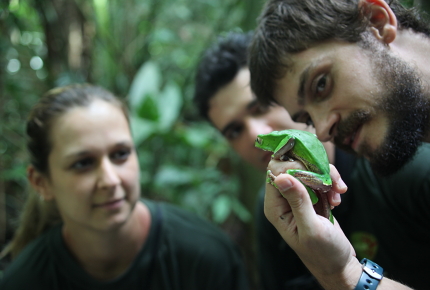
Teaching English: Cambodia, How do you go about making school-based volunteer placements, which can do more harm than good, ethical and beneficial?
Well, you can start by only providing full school term placements, re-dispersing the funds generated from English lessons back into rural development projects and finally not charging well-skilled volunteers a fee to get involved – all of which forms part of the Conversations With Foreigners ethos.
Volunteers with the organisation are based in Phnom Penh, the Cambodian capital, and spend five hours each day teaching English to students of all ages. Volunteers also have access to 24/7 living support including Khmer language lessons, cooking classes and wider social activities.
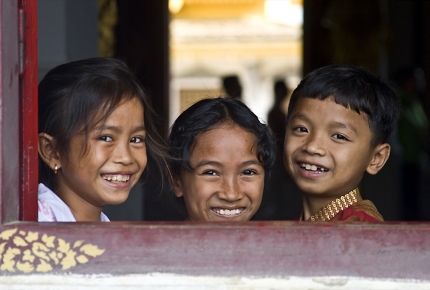
Night safari: Laos, Twice a winner at the World Responsible Tourism Awards, the Nam Nern Night Safari and Ecolodge in northeastern Laos promotes ethical and responsible tourism among a wonderful world of tiger, gaur and Sambar deer.
Stationed in the nationally protected area of Nam Et-Phou Louey, tourists stay in locally built bungalows made from recycled wood and are asked to record the animals they spot on safari. The more endangered the species they see, the more money the local villages receive.
What’s more, 90% of the tour revenue goes directly back to the community and the meals of Khmu tempura and Soop pak (traditional Laotian steamed vegetables) are not only authentic, but locally grown too.
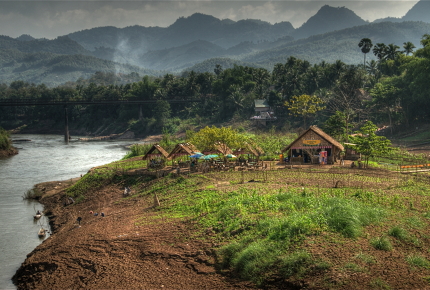
Beach stay: Tanzania, A winner in the Best for Beach category at the Responsible Tourism Awards 2014, Chole Mjini Island is a castaway’s paradise located off the coast of Tanzania.
With no roads or electricity, guests to the low-impact resort can enjoy a simple sojourn in hand-built tree houses and spend days either stretched out on deserted shorelines or submerged in search of whale sharks.
The resort’s founders are deeply committed to advancing the local community, with generated income already used to build and fund schools, a hospital, a library and women’s centre on the island.
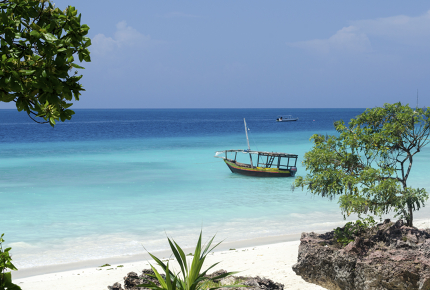
Educational programme: Cambodia, The reverberations of the Khmer Rouge regime are still being felt in Cambodia, and only now is the country slowly coming out of its unwilling coma, revealing a world of long-hidden temples, tropical beaches and forest-fringed mountains.
Still, extreme poverty persists, but a volunteering trip with People and Places will deliver support to desperate Siem Reap communities. Working with a local NGO, volunteers with business, education, construction and arts skills will help deliver a wide-ranging programme of activities and workshops in three different villages.
Conducting house repairs and installing water wells are amongst the contributions made by volunteers, which have a positive impact on the lives of locals, whilst giving volunteers a glimpse into this complex Asian kingdom.
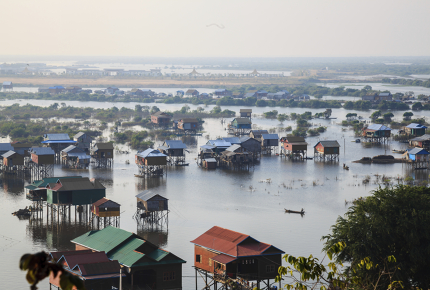
Teaching: Morocco, It’s the breathtaking beauty that draws tourists to Morocco’s High Atlas Mountains, but while the remoteness of the setting may aid its charm it also causes problems.
Inhabitants of the region’s rural villages lack access to educational institutions, meaning few people, especially females, continue their education past primary school. Education For All (EFA) is a Moroccan NGO that builds and runs girls’ boarding houses near secondary schools in the High Atlas, making further education logistically possible.
Based in the picturesque town of Asni, the programme is looking for female volunteers with teaching (or TEFL) experience, and a knowledge of French, who can provide additional pastoral and educational support to the girls outside of their allotted school hours.
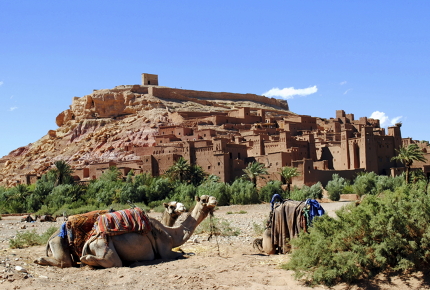
Andean homestay: Peru, Ethically conscious travellers may have qualms about joining the hordes of tourists that scramble up the city of Machu Picchu each day, creating adverse effects that have led to UNESCO considering it for its list of heritage sites in danger.
Keen to offer an alternative itinerary that helps preserve the beauty of the site, Dragoman offers travellers another route to the not-so-lost city of the Incas.
Crisscrossing through the Urubamba Valley, the tour capitalises on uninterrupted views of the Andes and also includes home stays in traditional villages – providing a direct source of income. The tour arrives at the sacred site at sunrise, when most visitors are still in bed.
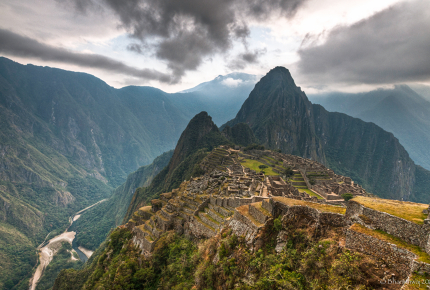
Business development: Saint Lucia, While Saint Lucia’s postcard appeal of glistening sands and turquoise waters has been instrumental in drawing the crowds, this homogeneous beach resort perception has been detrimental to the sovereign island’s cultural value.
Taking on the challenge of drawing beach bums into the historically rich interior of the island is the job of the National Trust of Saint Lucia. This non-profit organisation campaigns to protect and promote the island’s patrimony, from historical structures to areas of natural beauty.
From their offices in Pigeon Island National Park, volunteers with experience in marketing and sales, tourism development or business development are needed to forge new projects and work on existing campaigns.
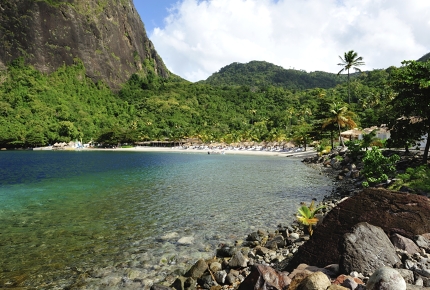
Himalayan homestay: India, With its ancient footpaths, weathered temples and sacred peaks, the Himalayan foothills of northern India command a mystical air, the people who call this region home an enigma to most.
Helping intrepid travellers navigate this, potentially hazardous, expanse is Village Ways, whose ethical format aims to not only provide participants with a rare insight into the lives of those that call these mountains home, but also help protect their way of life.
Operating tours throughout India and Nepal, Village Ways aims to use sustainable tourism as a model for income generation in these remote communities. Travellers spend days trekking through the dramatic landscape and evenings dining with locals, spending the night in traditional home stays.
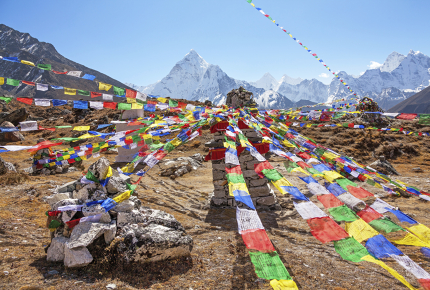


0 Comments